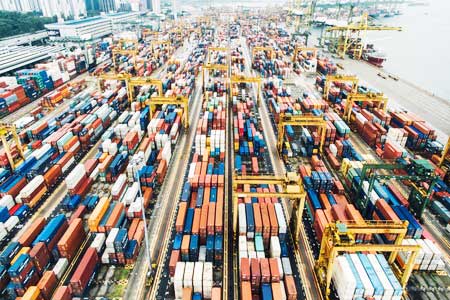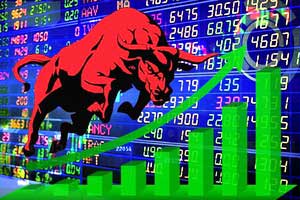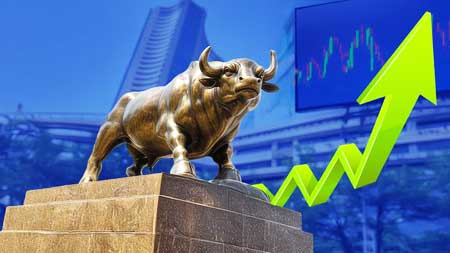Global trade and tariff uncertainties could become a catalyst for reforms in India over the medium term and for growth results, the reforms must run deep, an HSBC Research report said on Tuesday.
Potential US tariffs may have already become a catalyst for reforms like lowering import tariffs, opening up to regional FDI, fast-tracking trade deals, and making the Indian rupee more flexible.
"And India does not have to look too far for models to emulate. Its success in services exports has demonstrated the power of moving up the value chain, from basic (call centre services) to high-tech (professional services)," said the report.
India's goods trade deficit narrowed sharply in February to $14.1 billion, from $23 billion in January.
“The trade deficit tends to narrow in February but this time, it narrowed rather sharply to the lowest in more than three years,” the report mentioned.
India's goods trade deficit narrowed to $14 billion and the services trade surplus rose to $18.5 billion, putting the overall trade balance in a rare surplus zone in February.
A normalisation in imports across the board - oil, gold, and core - led to the narrowing of the goods trade deficit, the report mentioned.
Global trade and tariff uncertainty is likely to lower India's GDP growth in the short term, but could become a catalyst for reforms over the medium term; for growth results, however, reforms must run deep.
Within exports, core goods were softer, led more by weaker investment goods exports than consumer goods exports.
"This is in line with our expectation that globally, FDI and investment may be challenged in 2025, due to global uncertainty," the HSBC report noted.
Within imports, all key categories softened - oil, gold and core. Falling global oil prices lowered the oil import bill by $1.5 billion, while gold imports remained modest after a steep rise in Q4 2024.
The services trade surplus remained robust at $18.5 billion. On seasonally adjusted sequential terms, services exports have been rising by an average 3 per cent for three months.








Indian stock markets wrap up week on strong note as tariff fears ease
The Indian stock markets wrapped up the week on a strong note, gaining nearly 2 per cent, as the US decision to defer tariffs for all countries except China eased recession concerns, boosting sentiment and lifting fears of a global slowdown, experts said on Saturday.
Centre sets up Global Tariff and Trade Helpdesk to assist exporters, importers
The Centre has operationalised a dedicated ‘Global Tariff and Trade Helpdesk’ to assist the country’s exporters and importers in navigating emerging trade issues due to the hike in tariffs announced by the US.
India's forex reserves surge to $676.3 billion
India's foreign exchange reserves surged by $10.8 billion to $676.3 billion during the week ended April 4, according to data released by the Reserve Bank of India on Friday.
Sensex jumps over 1,300 points after Trump pauses tariffs till July 9
The Sensex witnessed a sharp rally of more than 1,300 points on Thursday after US President Donald Trump announced a 90-day pause on trade tariffs for most countries, including India.
US major BlackRock largest investor in Adani Group’s $750 million bond issue
US-based leading asset manager BlackRock is the largest investor in $750 million private bond issuance by the Indian behemoth Adani Group, informed sources said on Thursday.
NPCI to decide on person-to-merchant payments cap on UPI transactions: RBI
In order to further boost digital payments, the National Payments Corporation of India will be enabled to set the limit on person-to-merchants transactions via Unified Payments Interface (UPI), RBI Governor Sanjay Malhotra said on Wednesday.
RBI cuts repo rate by 25 basis points, switches to accommodative stance to spur growth
RBI Governor Sanjay Malhotra on Wednesday announced a 25 basis cut in the policy rate from 6.25 per cent to 6 per cent and change in monetary policy stance from neutral to accommodative to accelerate economic growth.